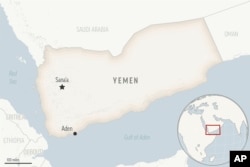Flooding triggered by torrential rain has left 45 people dead in Yemen in recent days, according to tolls given Wednesday by a United Nations agency and a local official.
Flash floods caused 15 deaths in Maqbanah in the southwestern province of Taez on Friday, UN humanitarian agency OCHA said on social media platform X.
In the Houthi-held Hodeida region, Governor Mohamed Qahim told the rebels’ Al-Masirah TV that 30 people died and five were missing in the floods, adding that more than 500 people had been displaced.
He added that a number of homes were destroyed and more than seven cars were swept away.
OCHA said the flooding in Taez had affected 10,000 people and resulted in 80 wells being buried, farmlands being washed away and homes damaged, citing “access difficulties” and a shortage of funding for aid agencies.
The U.N. Food and Agriculture Organization had earlier said that Yemen was expected to witness “cumulative rainfall of 300 mm across the Central Highlands and Southern Uplands, with the highest daily rainfall intensity (over 120 mm) forecasted for August 7th.”
Several areas across Yemen have seen heavy rainfall and flooding since late July, affecting daily life for many people in the war-ravaged country.
OCHA had reported on July 28 the death of three people including a child as a result of flooding in the northern, rebel-held Saada governorate.
The flooding also destroyed more than 1,000 homes for displaced people, OCHA said, adding that around 2,000 families were affected.
Yemen has been gripped by war that erupted nearly a decade ago when Iran-backed Houthi rebels seized the capital Sana’a, sending the internationally recognized government fleeing to Aden.
The conflict has triggered one of the world’s worst humanitarian crisis, with aid deliveries complicated by insecurity and logistical difficulties.



